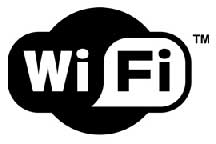 Information about Macedonia often only makes headlines in international media when ethnic conflicts erupt. However, this small country aims to change its image by becoming the world’s first “wireless nation.”
Information about Macedonia often only makes headlines in international media when ethnic conflicts erupt. However, this small country aims to change its image by becoming the world’s first “wireless nation.”
In just four years, Macedonia has transformed from one of the poorest countries in Europe into a technologically advanced region.
Thanks to government investment mobilization, 430 schools in Macedonia are now equipped with their own computer libraries and nationwide broadband coverage, making wealthier Western countries envious.
Schools and villages that once had no landline phones are now connected to the world through wireless networks based on Motorola technology. This initiative was inspired by the late President Boris Trajkovski’s belief that children should have access to modern technology from a young age.
In 2002, during an official visit to China, Trajkovski decided to equip the education sector with computer systems using open-source software from this Eastern nation. Subsequently, Microsoft supported the initiative with over 6,000 versions of Windows software.
This alone was considered a significant reform for Macedonia. However, Trajkovski believed that the lack of Internet access was a major disadvantage for children. He began meeting with and persuading the American aid organization USAID to invest in Macedonia for a decade.
Despite assistance from USAID, the Internet proliferation project faced major financial barriers due to slow dial-up connection costs exceeding $300 per month for each school. Glenn Strachan, Director of the Macedonia Connects project, noted that this situation arose because the local telecommunications company Maktel had raised infrastructure construction and operational costs.
On December 31, 2004, Maktel ended its monopoly, and USAID quickly rolled out affordable high-speed Internet services not just for schools but for other sectors as well. By August 2005, the Internet service provider On.Net had completed the infrastructure for nationwide wireless coverage, and a month later, all schools in Macedonia were connected.
Strachan understood that modern technology could not easily heal the wounds of war in Macedonia, but in the long run, the Internet would help improve the quality of education and modernize the entire economy. For now, over 300,000 students are allowed free Internet access, and USAID has recently committed to continue expanding support for Macedonia.


















































